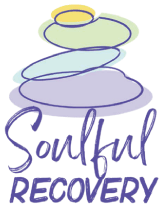Cocaine Addiction
What Are The Statistics I Need To Know?
Despite the increase of abuse for other substances, cocaine is still one of the most abundantly abused drugs in the world. According to a 2020 SAMHSA survey, approximately 1.3 million Americans ages 12 and older experienced Cocaine Use Disorder. Of this population, roughly 20,000 people overdosed from cocaine use.
How Does Cocaine Work?
Cocaine is one the strongest stimulant drugs in the illegal substances market. When someone purchases the drug, it is usually in powdered form and often mixed with other substances to increase its addictive potency. Similarly, crack cocaine is the crystal form of cocaine that’s smoked. Both are extremely addictive and have very similar effects.
Both cocaine and crack cocaine affect the brain in close ways. Cocaine use affects the brain in 3 main regions: central nervous system (CNS), your frontal lobe and dopamine systems. Firstly, your CNS is responsible for primitive, involuntary neural functions. These include your cardiovascular system, respiratory rate and other involuntary motor functions. Secondly, your frontal lobe impacts emotions, thoughts, personality, decision making skills and more. Thirdly, the dopamine system is most commonly associated with pleasure and reward. Everytime someone uses cocaine, their brain becomes flooded with endorphins, which makes them seek out the source that provided this intoxicating effect.
Cocaine and crack cocaine become easily addictive because it releases a lot of dopamine in the brain and it is short acting. Since this substance lasts only 15-30 minutes, people need to keep using it frequently to create the dopamine intensive effects. Over a short period of time, people will build a tolerance and need higher dosages to create the desired effect. This creates a vicious cycle of both frequent and high dose use.

Signs and Symptoms of Cocaine Use Disorder
It can be incredibly difficult to know whether your loved one is struggling with cocaine use. Sometimes the signs and symptoms are not always obvious. However, when several of the symptoms below are combined, it can be a strong indicator that your loved one is abusing cocaine. The following are the most common signs and symptoms associated with cocaine use disorder:
- Increased restlessness and irritability
- Frequently dilated pupils
- Increased excitability, rambling speech
- Nosebleeds, frequent running nose
- Problems with money
- Deception or hiding use
- Excessive sweating
- Increased blood pressure and heart rate
- Paleness


If you have a suspicion your loved one is abusing cocaine, do not wait to connect for help. Please contact us to speak with one of our qualified team members to learn how you can best address your loved one’s cocaine use.
Find Your Way Today...



